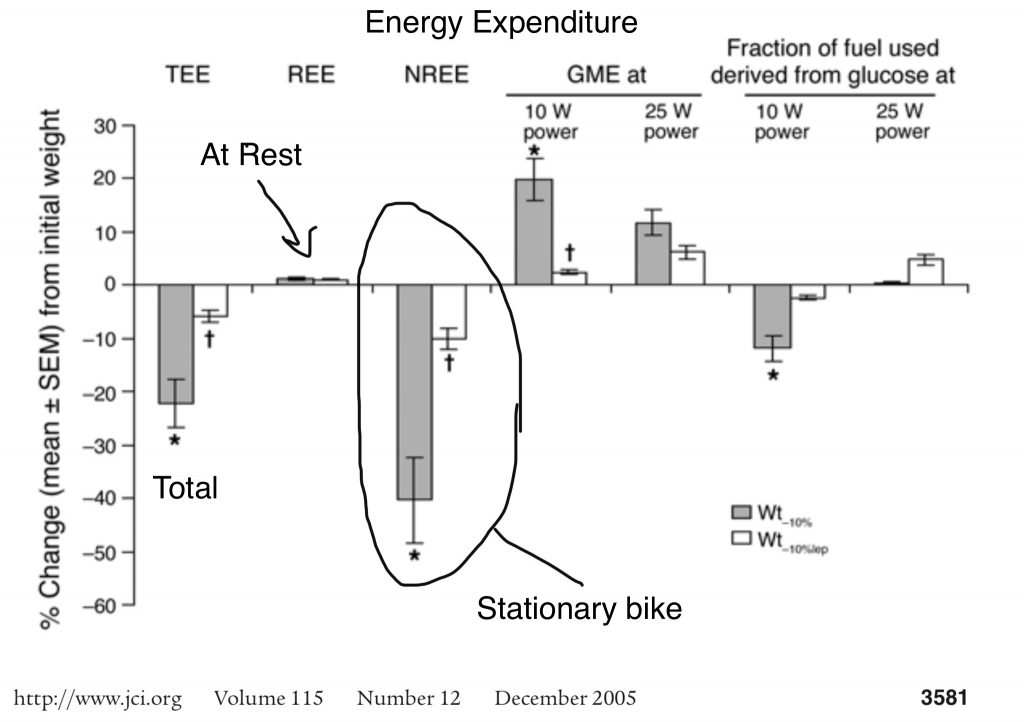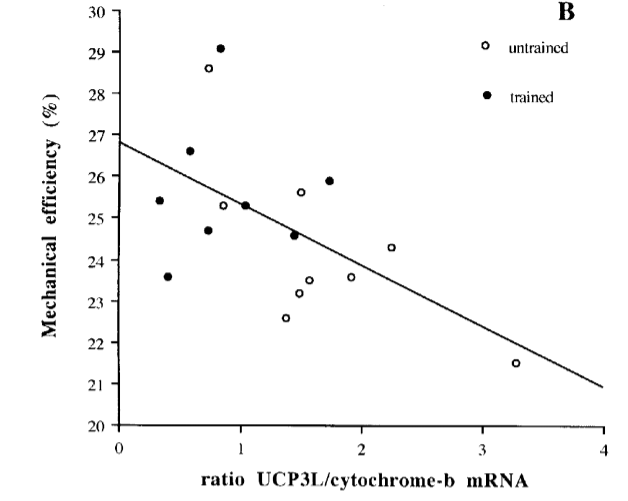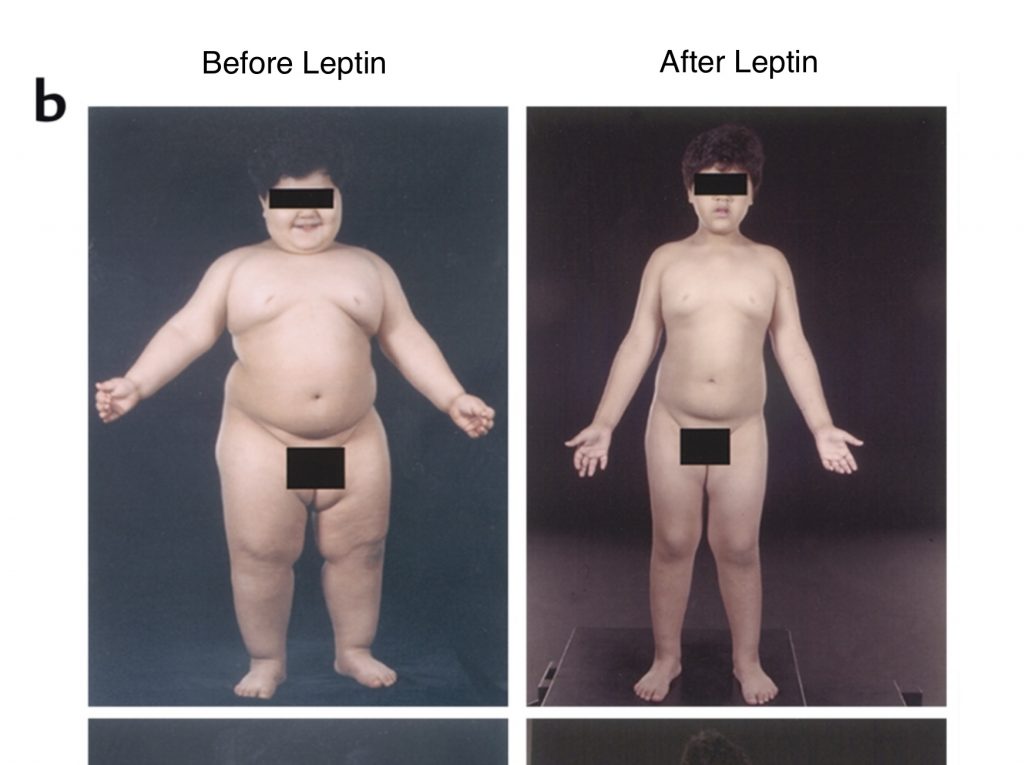There are many believers in a reductionist calories in, calories out (CICO) view of the world. People in this tribe often say things like, “to lose weight, you just have to eat less and move more.” I want to be clear, I believe in calories in, calories out from a strict thermodynamic perspective. Calories you ingest don’t just disappear, you have to burn, store or excrete them.
If you are a strict CICO believer – if you think all that needs to be done to achieve lasting weight loss is to move more, eat less – then what conclusion can be drawn other than that people who are overweight are slothful and gluttonous? Alternatively, you can believe that we live in an obesogenic environment where modern food is so palatable that it simply overwhelms our power to resist it and we’re no longer laboring on the farm.
But as I pointed out in Americans Ate a LOT in 1939, caloric intake was VERY high in the thirties among city dwellers – after the subway was built, buildings had elevators and there was a fleet of cabs. An interesting quirk is that the richest, who would have had sedentary jobs and been most able to afford cars or take taxis, also ate the most. Each wealthy adult male (back then they converted everything into units of per adult male ) in a Northeast city in the thirties went through 4500 calories a day (some of it would have been wasted). Jogging wasn’t a thing yet. Obesity was rare.

Certainly the cultural expectation back then was that mom would make from scratch 3 square meals per day for herself, hubby and the kids. Eggs, sausage and toast. Pancakes with butter and syrup. Porkchops, mashed potatoes and apple pie. Whole milk. Meatloaf sandwiches. Creamed veggies. Cookies, jello molds.
But that wasn’t an obesogenic environment, I guess.
The problem with a strict view of CICO is that all evidence suggests that “eating less and moving more” is not how our ancestors remained lean.
Eating Less And Moving More Both Reduce Your Metabolic Rate
In the last post I showed that people who reduced their body weight by 10% using an all-liquid, 800 calorie-per-day diet had a 22% drop in their Total Energy Expenditure. Losing weight by caloric restriction is a surefire way to tank your metabolic rate.

The lowered metabolic rate of someone in a lowered weight state achieved by caloric restriction lasts for at least a year.1
This drop in energy expenditure was caused by lower circulating leptin levels and happened as a result of increased mechanical efficiency of skeletal muscle. Simply put, subjects with higher leptin – before weight loss – wasted more energy as heat when doing simple things like walking around. The reason for this is most likely to be that leptin causes an increase in a protein called UCP3, which is expressed in muscle tissues and is correlated with reduced mechanical efficiency. UCP3 allows you to do thermogensis (making heat) in your muscles. Mice who over-express UCP3 are protected from obesity!2
Ready for more bad news? The second best way to lower your metabolic rate is by exercising. That’s right! Trained athletes have lowered UCP3 and higher mechanical efficiency (less thermogenesis).3 Those three 30 minute bouts of cardio make it so that the whole rest of the week you are burning less calories walking around.

Eating less and moving more is a sure fire way to decrease total energy expenditure.
Leptin Again
In the previous, previous article I argued that not only is there a strong correlation between expression level of the enzyme SCD1 and obesity, in fact over-expression of SCD1 in muscle tissues actually CAUSES fat storage.
Guess what another job of leptin is? It suppresses SCD1.4
Furthermore, humans who lack a functional leptin gene are obese but if you inject them with leptin they rapidly lose weight.5

It looks to me like humans can use specific biological responses to control energy expenditure and fat storage: increasing UCP3 or decreasing SCD1, for instance. Leptin controls a lot of these decisions.
Conclusion
The concept of eat less, move more is that through willpower we can overcome our biological urges. Ignore that hunger! Huff it on that trampoline! We can get lean through a lifetime of deprivation.
I think a better approach is to work WITH our biology. Let’s focus on the enzyme systems that are making the day to day decisions about whether or not to burn that calorie. Next up: bio-hacking leptin.
- 1.Rosenbaum M, Hirsch J, Gallagher DA, Leibel RL. Long-term persistence of adaptive thermogenesis in subjects who have maintained a reduced body weight. The American Journal of Clinical Nutrition. Published online October 1, 2008:906-912. doi:10.1093/ajcn/88.4.906
- 2.Son C, Hosoda K, Ishihara K, et al. Reduction of diet-induced obesity in transgenic mice overexpressing uncoupling protein 3 in skeletal muscle. Diabetologia. Published online January 1, 2004:47-54. doi:10.1007/s00125-003-1272-8
- 3.Schrauwen P, Troost F, Xia J, Ravussin E, Saris W. Skeletal muscle UCP2 and UCP3 expression in trained and untrained male subjects. Int J Obes. Published online September 1999:966-972. doi:10.1038/sj.ijo.0801026
- 4.Biddinger SB, Miyazaki M, Boucher J, Ntambi JM, Kahn CR. Leptin Suppresses Stearoyl-CoA Desaturase 1 by Mechanisms Independent of Insulin and Sterol Regulatory Element-Binding Protein-1c. Diabetes. Published online June 27, 2006:2032-2041. doi:10.2337/db05-0742
- 5.Farooqi IS, Matarese G, Lord GM, et al. Beneficial effects of leptin on obesity, T cell hyporesponsiveness, and neuroendocrine/metabolic dysfunction of human congenital leptin deficiency. J Clin Invest. Published online October 15, 2002:1093-1103. doi:10.1172/jci0215693


I’m interested to read your next up as my understanding is when leptin was discovered it was thought to be a weight loss panacea but that didn’t pan out. When someone has excess fat tissue secreting leptin for some time they develop leptin resistance and leptin injections won’t help them.
Yes. The reason someone became obese in the first place is that they were leptin resistant. So injecting more leptin into someone who is leptin resistant isn’t effective. I suspect that this is because most of the functions of leptin are carried out by driving ROS production and we’re too unsaturated. So cranking up leptin won’t work but we can replace all of the FUNCTIONS of leptin.
100% agree. I’ve never looked into replacing the functions of leptin, I’m very interested to see your take on this.
Dr. Greg Ellis, PhD. Temple University told me 20 years ago about “metabolic adaptation”. When you reduce calories and achieve weight loss goals, and you stay in that caloric range, the body will adapt, slow down the metabolism and store calories. The way he described it: “He’s only taking in 1500 calories per day. OK, we need to store that because it’s not enough.” Eventually weight gain occurs with such a reduced caloric intake.
Exactly.
Will there be an upcoming article on how to raise leptin levels? Foods to eat that help with that?
Most of us are fairly leptin resistant beyond the amount we already respond to it, so more leptin won’t help. But we can do all of the things that leptin does…
This is probably an apt place to mention the Minnesota Starvation Study as well. Before he got everyone scared of saturated fat, Ancel Keys did an experiment to see what would be required to rehabilitate starving post-war populations. He put his subjects on a diet of ~1800 calories/day and required them to walk 20 miles per week. They lost weight of course, but that included a significant amount of lean mass, and they experienced significant adverse psychological effects including obsession with food. They also experienced significant rebound weight gain during the refeeding phase.
The negative results seem pretty clear, and yet, nearly those exact same suggestions are promoted by the “eat less/move more” crowd as the standard for “healthy” weight loss. Unsurprisingly, the negative effects of that regimen are also experienced by many regular people who try such an approach. See also the Biggest Loser follow-up study for similar problems.
Well said.
My apologies if adding links to other sites aren’t allowed, but I couldn’t help but think of this Timothy Ferriss blog post from a few years back where he cites an article by Dr. Mike Eades with regard to the Minnesota Starvation Study. He contrasts it with a study run by British researcher John Yudkin where subjects ate an ad libitum diet of high fat low carb. These subjects ended up eating a similar number of overall calories as the subjects in Minnesota but the Yudkin subjects were satisfied with these calories and not hungry. The implicit message is that it isn’t the overall number of calories but their quality which is what counts. But, I believe both of these studies, done in the 1940s and 1960s, were before the population had been over-fed with processed omega-6 seed oils and Linoleic acid.
https://tim.blog/2008/02/25/the-science-of-fat-loss-why-a-calorie-isnt-always-a-calorie/comment-page-2/
The dates of the studies are an interesting point. I think the relative level of linoleic acid in the diet may be a good explanation for why subjects in the Minnesota Starvation Study (and other starving wartime populations including POWs) became extremely gaunt at a given calorie/activity level, while modern people following a similar regimen often stay overweight/skinny-fat or even gain weight (to the disbelief of their trainers/coaches who will then accuse them of being weak or liars). This looks exactly like the ROS/Protons concept in action to me.
Also, speaking of those trainers, it seems to me that the most vocal proponents of reductionist CICO are often very fit athletic/bodybuilder types. In those people, where the CICO concept is usually implemented as a formal, short-term cutting phase with a pre-defined endpoint (which theoretically avoids excessive adaptation to the lower caloric intake), that strategy probably works just fine for their goal of (temporarily?) knocking down a few percentage points of body fat. For all the reasons discussed here and elsewhere, extrapolating that strategy to an average person with a lot of fat to lose (and less lean mass that can be sacrificed) is folly.
Aaron, that is a good insight. I had a weight loss of 40 pounds a couple years ago, and I have at least another 20 to lose. It’s been really hard to lose this last 20 pounds, no matter what I’ve done. I now wonder if I have hit a wall due to a torpid metabolism. Although I have made an effort over recent years to replace all LA in my diet, I wonder if the weight loss released LA stored in my body fat. I was raised vegetarian with lots of vegetable oils around, always margarine and Kraft singles, never too much saturated fats. So I figure I have a fair amount of LA in my fat. Although my Omega Quant test wasn’t that bad my body temps have fallen from 98.6 or higher prior to the weight loss down to 97.1-97.5 over the last couple years.
Exactly! People who believe in CICO tend to be fit and the approach works FOR THEM.
I think that what matters for satiation/etc. At the end of the day is the composition of Free Fatty Acids (FFA), which are the things actually being transported into mitochondria. FFA are a mixture of dietary and stored fat, so in the Minnesota study, they would have had saturated body fat to counter the dietary PUFA. Now turn it around. Modern people are fighting stored PUFA/MUFA when they try to eliminate dietary PUFA.
I was going to mention that Biggest Loser follow up study. The summary, best as I recall, is that almost all of the contestants regained their weight or even more. The few that kept the weight off were eating about 800 kcals/day less than theoretical. I think this was males only.
That’s me! In 2009 I weighed 280 pounds on a 6’2″ frame. I discovered paleo eating, the Primal Blueprint, ditched “vegetable” oils, and pedaled my arse off under the Florida sun. Fifteen months later (I didn’t ride much in the winter), I got down to 210 pounds.
Then, the roller coaster. Hit 260+ once, 240+ a couple of times. More hard work, not so much physical, but recording everything I eat. I’m now at “high 190’s.” I’m 75. My recordings show that I can only eat 1800-1900 kcals/day to maintain this weight. Seventy to eighty grams of carbs. Just happens to be about 800 kcals/day less than theoretical!
Between part time work and leisure, I walk 16-18 miles a week. At work, I lift, move, and wrestle many heavy boxes four days a week. My body temperature is usually on the high side.
Go figger.
I just did a quick comparison between you and men from 1919. The ten tallest men – who averaged a bit shorter than you – averaged a Resting Metabolic Rate of 1900 calories per day while lying in a chaise lounge. Most studies I’ve seen put the difference between Resting Metabolic Rate and Total Energy Expenditure somewhere between 1.6 and 2. So in 1919 the average male your height had a total energy expenditure somewhere between 3000 and 3800 calories. It sounds like you are very active. You SHOULD have a metabolic rate North of 4000 calories per day at that level of exertion. Something is very wrong with our metabolisms. The raw data is attached as a PDF at the end of the file if you want to look for yourself.
What I never hear anyone mention regarding the Minnesota Starvation Study is that, from my understanding, the food was not just calorie restricted but also very nutritionally inadequate. I believe it consisted of mostly cabbage, bread and onions, and very little meat. It was meant to mimic what the researchers thought the people in the war zones would be able to get. So the subjects would have become very malnourished. I think it’s likely that many of the extreme psychological problems they experienced had more to do with vitamin, mineral, and other deficiencies than just caloric restriction. If they had been given meat and organs and still restricted to 800 calories a day they probably would have done a lot better, although no doubt they would still have had lowered metabolic rates, fatigue and so on. I wonder that no one ever seems to take this into consideration?
This is all such great stuff. I’ve had moderate success losing fat with low-carb/lazy keto, primarily animal foods – but then I get swayed by the underlying belief I have that a well-functioning human body ought to be metabolically flexible and able to process a variety of real, actual foods. And honestly, when we occasionally throw some processed junk food or plant toxins at our digestive systems, we should be able to recover pretty quickly from whatever upset is caused. For me, the first source I remember reading that highlighted this was Dr. Diana Schwarzbein’s books. A lot of the nuance isn’t really there, but the underlying principles of hormonal balance and metabolic repair – get healthy to lose fat, rather than losing fat to get healthy. Ray Peat, Matt Stone, and others have some interesting takes on metabolic health as well, and the Weston Price discoveries around varied diets of real, traditionally prepared foods leading to good health also make sense.
All of that is to preface my admiration for this blog, and the discussion that occurs here. It seems to take into account the hormonal/metabolic aspects, the real food aspects, and also apply it to what real people in the real world might actually want to eat. And because so much of the underlying biochemical effects are discussed, it’s easy to substitute foods or even to completely alter the macros and still achieve many of the same effects. I suspect that, whether or not individuals are losing weight or inches, metabolic health is improving by the use of this information.
Thank you! I think that a lot of the joy of eating has been sapped by dietary trends that don’t get at the root of the problem, which is a metabolic one. Fix the metabolism and you can eat apple pie again!
Thanks Brad, really appreciate your work and articles. Have you investigated any of the biology, cause and effect or treatment of Lipedema fat ? Do you think Leptin has a role in this condition? Thanks
I haven’t had time to research this… I wouldn’t be surprised? I can’t really say, though.